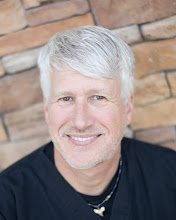A bit of a philosophical post today. I've been listening to some podcasts lately that have dealt with overcoming obstacles and I find it interesting how much it seems that many people *trying* to achieve success become despondent when it doesn't show up quickly.
In today's world, especially with the proliferation of social media, success seems to be something achievable with a minimum of effort, yet nothing could be further from the truth. In my career I'm asked all of the time by doctors and hygienists "how can I became a speaker/lecturer/author/consultant?" My honest answer to that type of question is to become whatever it is you want to be, before you are considered one.
In my case, I started out with technology. I was lucky enough to start practicing with computer usage about the time that Windows 95 was coming to market and that brought the Internet to the forefront. My fascination with hardware hard started in the late 80s and it had led with a desire to figure out how computers worked. I ended up investing in a lot of hardware just so I could take it apart and figure out how it managed to do what it did. I would see patients until 5:00 pm and then spend the next 4 or 5 hours taking things apart, reassembling, and reading every tech publication I could get my hands on. I became crazy proficient at all of these things.
Then I began hacking them. I figured out ways to force hardware to do things it wasn't built to do. I wasn't so much of a software hacker, writing code, as I was a hardware hacker. Given enough tinkering time, I could replace wire and circuit boards until the device bent to my will. My best software exploit was teaching myself HTML and coding webpages back when they were rare and having a photo on a page was a significant programming achievement.
On top of all of the hardware work, I ordered a series of floppy disks that contained all types of Internet connection software. Back then I had to separately install apps for FTP, Gopher, news server protocols, and other things. Then I began exploring systems that were connected to the Internet... searching for systems that would respond to my queries sort of like Matthew Broderick in War Games.
In 1998 the ADA could see the writing on the wall and created a "Technology Day" as part of the ADA Annual Meeting (now Smile-con). A friend of mine knew some people on the planning committee for that meeting and he recommended me to them. One of my first lectures was to an audience at the ADA Meeting.
BUT... by the time I was lecturing at the ADA Meeting I had spent thousands of hours tearing into hardware. I had built my own network out of parts. Oh... and I had FAILED sometimes spectacularly in my adventures. I had blown circuit breakers, fried expensive electronic items, and shocked myself on exposed wires more times than I could remember. I had also spent tons of money on pieces of hardware that I took out of the box and promptly destroyed... sometimes by accident and sometimes just because I could.
The great thing about the failures was that every time I failed, I learned. I got better at what I was doing and when I coached others I could do so from the perspective of one who had flamed out many times and knew just how to handle certain situations because I had already been there myself.
Throughout my career I have embraced failure. Simply put, failure means you are one step closer to success. When something fails I ask myself "why?" I frequently use it as a motivator. I figure that if others are having success with something, then what is wrong with me?
The only time failure is bad is when it cannot propel you forward in problem solving.
Success often looks like hard work and the reason for that is because, simply put, it IS.
After my technology learning, I turned by eyes toward clinical practice and attacked it with the same fervor that I had applied to tech. Fortunately that trail had been blazed by geniuses that I could stand on the shoulders of. I didn't need to invent or create, however I *could* still hack! So my clinical career has been built on taking the principles discovered by others and hacking them for new materials, new methods, and new technologies. There have been failures there too, though I haven't electrocuted myself doing dentistry.
The lesson here is that failure is the fuel that ignites and sustains innovation. Embrace failure but do not settle for it. Failure is a compass that points to success.




